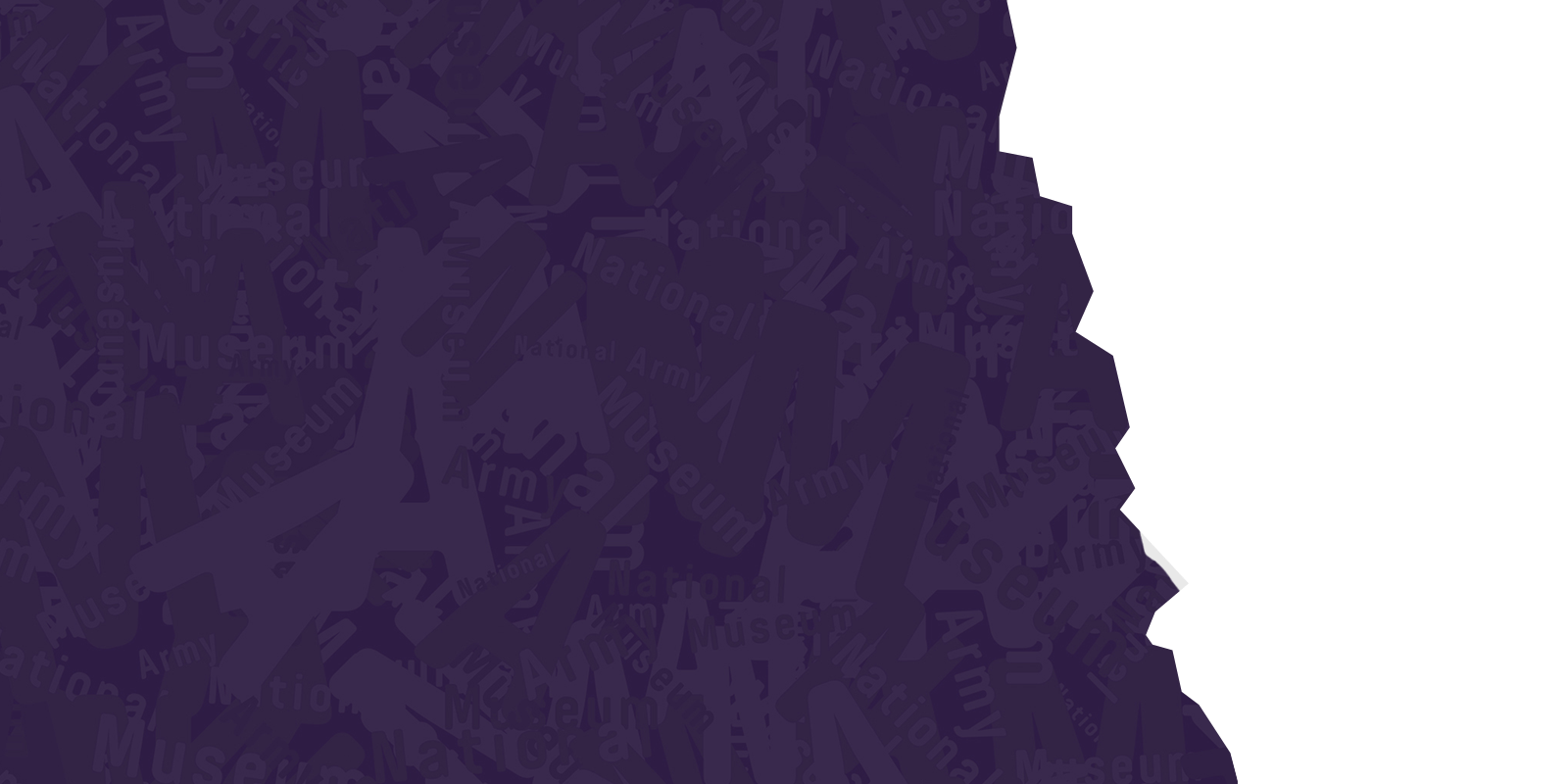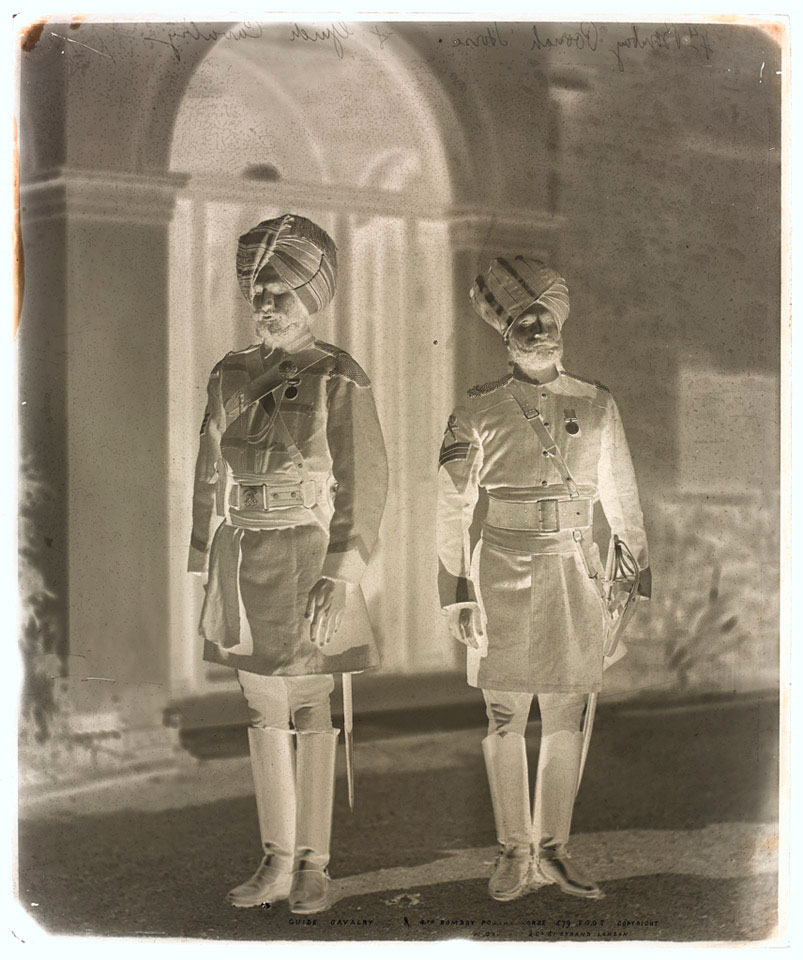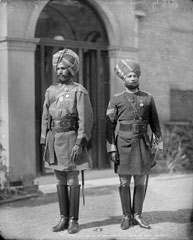
Online Collection
« Prev - 1 of 1 results - Next »
Daffadars of the Queen's Own Corps of Guides Cavalry and the 4th (Prince Albert Victor's Own) Bombay Cavalry (Poona Horse), 1893
Glass negative, W Gregory and Company, 51 Strand, London, 1895 (c).
This image comes from a collection of glass plate negatives associated with William Gregory and Company. The negatives depict the British Army, including some members of the colonial forces, 'at home' in Britain during the 1890s.
As well as being intimate portraits of soldiers from this era, the images provide detailed illustrations of uniforms worn during the high point of military tailoring.
This image was one of a number taken of Queen Victoria's Indian Escort on the opening of the Imperial Institute, South Kensington on 10 May 1893.
A number of different Indian Cavalry Regiments were represented. These include the Queen's Own Corps of Guides Cavalry (left) and the 4th (Prince Albert Victor's Own) Bombay Cavalry (Poona Horse) (right). Both men carry the rank of daffadar, equivalent to a Sergeant. They wear full dress uniform, with turbans of regimental pattern, and kurtas with shoulder chains. They also wear riding breeches tucked into black boots. Their swords hang from their Sam Browne belts, and both men wear a medal on their left breast.
The daffadar from the 4th (Prince Albert Victor's Own) Bombay Cavalry (Poona Horse) (left) wears a khaki kurta with scarlet facings (collar and cuffs) and cummerbund. The daffadar from the Queen's Own Corps of Guides (right) wears a dark green kurta with facings in French grey and a red cummerbund.
One of a collection of 280 glass negatives, associated with Gregory and Company, London, and F G O Stuart, 1893 (c)-1900.
NAM Accession Number
NAM. 1978-02-37-280
Copyright/Ownership
National Army Museum, Out of Copyright
Location
National Army Museum, Study collection
Object URL
https://collection.nam.ac.uk/detail.php?acc=1978-02-37-280


